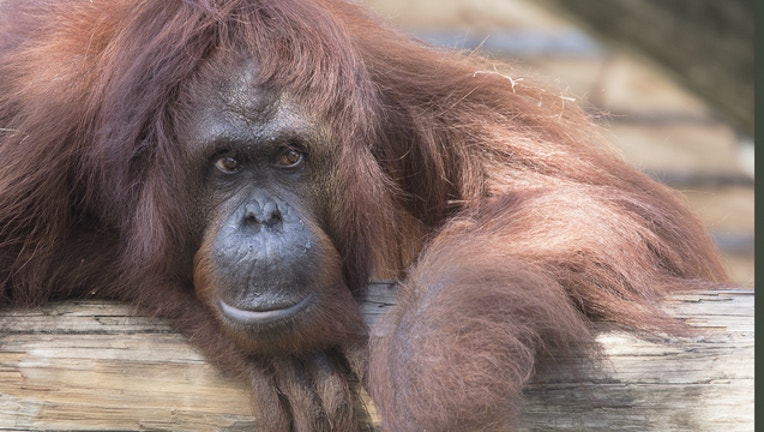Bornean orangutan pregnant at Tampa's Lowry Park Zoo

TAMPA, Fla. (FOX 35 WOFL) - The Tampa Lowry Park Zoo has announced that their Bornean orangutan, Dee Dee, is expecting a baby. The new addition is expected to arrive in late January.
They say that in October, a human pregnancy test confirmed that Dee Dee was pregnant. The zoo's animal care team and veterinary staff have worked closely with Dee Dee to voluntarily participate during ultrasounds.
The zoo says that Dee Dee is quite an experienced mother, as she has already given birth four times successfully. This is also the father's, Goyang, third baby at the zoo.
Dr. Ray Ball, VP of Medical Sciences at Tampa's Lowry Park Zoo, says that ""We are optimistic for a smooth delivery, but with any animal pregnancy there are certain risks and different outcomes. Dee Dee's health will be monitored with weekly ultrasounds to examine the growth of the fetus."
He went on to also say that "In addition to the Zoo's skilled veterinary team, we've assembled an amazing standby team of doctors and specialists from Tampa General Hospital, to collaborate with for a successful birth."
The Tampa Lowry Park Zoo is currently home to a group of seven endangered orangutans and participates in the Bornean Orangutan Species Survival Plan (SSP). The program, which is part of the Association of Zoos and Aquariums (AZA) efforts, protects wildlife species at risk of extinction.
The baby will be the tenth Bornean orangutan born at the Zoo. There are fewer than 100 Bornean orangutans in 24 AZA-accredited institutions in North America.
Chris Massaro, General Curator at Tampa's Lowry Park Zoo, also spoke about the pregnancy. "We are thrilled to announce Dee Dee's pregnancy. This is an important birth for the entire critically endangered Bornean orangutan population."
He also said that "We do remain cautiously optimistic, but feel it's important to have the community along for this journey. By sharing Dee Dee's experience, we are creating an intimate connection to her that we hope will leave a lasting impact. We encourage guests to become advocates for this incredible species and learn about the perils they face in the wild."
The longhaired red great apes are native to Malaysia and Indonesia, as they can be found on the islands of Borneo and Sumatra. The species is considered endangered in the wild due to critical habitat loss, increased use of palm oil, poaching, and pet trade. The population declined more than 50% during the last 60 years.

